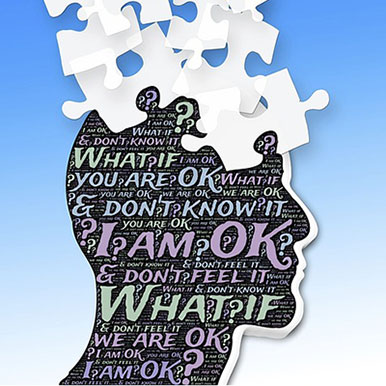
Emotional Neglect Questionnaire
Becoming aware of the impact of CEN can make a tremendous difference in your life.
Becoming aware of my CEN has hit the nail on the head for me. This is the missing piece that I’ve been searching for.
I finally understand what’s been wrong all my life, and I have hope that I can fix it.
This concept is literally a lifesaver for me.
CEN is often subtle, invisible and unmemorable.
SO HOW DO YOU KNOW IF YOU HAVE IT?
Take the Emotional Neglect Questionnaire to find out...
Keep track of how many questions you answer YES to and add them up at the end.
Do You...
1. Sometimes feel like you don’t belong when with your family or friends ?
Yes No
2. Pride yourself on not relying upon others ?
Yes No
3. Have difficulty asking for help ?
Yes No
4. Have friends or family who complain that you are aloof or distant ?
Yes No
5. Feel you have not met your potential in life ?
Yes No
6. Often just want to be left alone ?
Yes No
7. Secretly feel that you may be a fraud ?
Yes No
8. Tend to feel uncomfortable in social situations ?
Yes No
9. Often feel disappointed with, or angry at, yourself ?
Yes No
10. Judge yourself more harshly than you judge others ?
Yes No
11. Compare yourself to others and often find yourself sadly lacking?
Yes No
12. Find it easier to love animals than people ?
Yes No
13. Often feel irritable or unhappy for no apparent reason?
Yes No
14. Have trouble knowing what you’re feeling ?
Yes No
15. Have trouble identifying your strengths and weaknesses?
Yes No
16. Sometimes feel like you’re on the outside looking in ?
Yes No
17. Believe you’re one of those people who could easily live as a hermit ?
Yes No
18. Have trouble calming yourself ?
Yes No
19. Feel there’s something holding you back from being present in the moment?
Yes No
20. At times feel empty inside ?
Yes No
21. Secretly feel there’s something wrong with you ?
Yes No
22. Struggle with self-discipline ?
Yes No
Look back over your YES answers. These answers give you a window into the areas in which you may have experienced Emotional Neglect as a child. The more questions you answered "Yes", the more likely CEN has affected your life.

"Hi, I'm Dr. Jonice Webb, and now that you know how much Childhood Emotional Neglect, or CEN has affected your life, I would like to give you some tips on how you can recover from CEN."
Why is it important to recover from CEN?

Why is so difficult to live with CEN?

How to to recover from CEN?


Your Road to Recovery from CEN
These tips will help you to start on the road to recovering from CEN. You will finally start to understand things that have eluded you for your entire life. You will feel validated for the struggles you have had. And you will be able to start helping yourself to do things differently, now that you really know what happened.
During over 20 years of practicing psychology, I started to notice an “invisible factor” from childhood which weighed upon people in adulthood, sapping their joy, making them feel disconnected or unfulfilled, or causing them to struggle with self-discipline.
I called it Emotional Neglect.
First, I saw it in my psychology clients. Then, the circle widened, and I began to see it in the people all around me: at the grocery store, the mall, and even on reality TV shows.
This factor from childhood is so subtle that it goes virtually unnoticed by everyone while it does its silent damage to people’s lives.
As I became aware of the full power and prevalence of Emotional Neglect, I felt compelled to drag it out of the darkness and into the light; to help people to see how it effects them, and to give them the tools to fix it.
I hope that my book: Running on Empty will make people aware of the concept of Emotional Neglect so that they can see it in themselves and others, have the words to talk about it, and ensure that they don’t unwittingly pass it down to their own children.
My biggest goal is to help the large number of people who are struggling in silence, wondering what is wrong with them. To give them answers, and the tools to fix their Emotional Neglect.